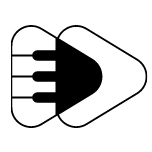5 Motivation Tips for Pianists
You started playing piano. And you started out with all the best intentions. You would practice every day and do everything necessary to become a great piano player. But somehow, you’re not making as much progress as you thought you would. And maybe you’re not even enjoying it anymore. If that sounds familiar, this blog could help you discover the piano motivation tips you need to improve your piano playing.
Whenever we start something new – especially a hobby like playing piano – things usually start off pretty well. You practice every day, follow tutorials online, look for inspiration and because of this, making huge steps from 0 to something. Then life happens and before you know it, you’re not making the steps you want. Progress seems to be far away.
The truth is, getting motivated is easy. But staying motivated is hard. Luckily, there are ways to get motivated again. Here are 5 of the best piano motivation tips!
1. Invest in the right tools
The thing is, if you don’t invest in the right tools, you have to put in so much extra effort to get to a point you’re comfortable with your progress. There are several tools that can help you, like a good instrument that fits your level, but more importantly is a good method for learning. As with anything, learning something new can be chaotic. So having a clear process and guidelines will help you be more structured. And structure helps you make your progress measurable. There are multiple piano learning apps, piano books and tutorials that can give you the right guidance. Explore them and decide what fits best with your goals.
2. Reward yourself
As a kid, you might have experienced the benefits of reward. Whether it would be a parent who rewards you for a good performance in the form of a complement, a teacher who gives you a sticker or even your friends that cheered you on. As adults however, this amazing gift of ‘reward’ has gotten a bit lost. As adults, we tend to be so hard on ourselves and see everything that we’re doing as a given. But this is not true. If you put effort into something and it worked out, praise yourself. Celebrate those small victories when you started a new piece, or you did an exercise on the piano you don’t really like, but you did because it helped you. Reward yourself when you learned a full piece.
3. Make it easy to practice
This has everything to do with visibility. The thing you see is the thing you think of. As humans, we are incapable of denying what we see right in front of us. How can you apply this to playing piano? Here are a few ways:
- Place your piano in a spot where you love spending time
- Open the lid of the piano
- Lay the music notes/learning method on the piano ready to go when you are
- Put the TV remote on the piano (if you really want to watch TV, you will have to actively go there to get it)
4. Play music that you love
Are you putting pressure on yourself to play ‘the right’ music? Or is your teacher giving you pieces to learn, but you don’t actually love those? You could argue, what is actually ‘the right’ music to play? If the music that you’re learning is not motivating you and making you not want to play piano, can it really be the right music? One of the best piano motivation tips is to pick music that you enjoy listening to. The music that when you listen to it, your heart beats a little faster of excitement. Because THAT is the music you will most likely also enjoy learning. See if you can find one of those and start learning that one. Bring it to your lesson if you can. I guarantee, you will find some motivation in that piece!
5. Film your progress
Have you ever experienced that someone tells you “you have grown so much at the piano”, but you don’t feel it? You know that you have practiced, but you don’t see any improvement. Keeping a video diary of your piano playing might help you see what others do. If you make a video today, chances are that in three months from now you look back at your older video and see what has changed. Chances are, you actually will see you have improved in some areas. Sometimes we literally need to see the proof to feel the progress. I promise, this will give you the needed piano motivation in the long run.
Watch this video for a more detailed explanation of these 5 tips:


